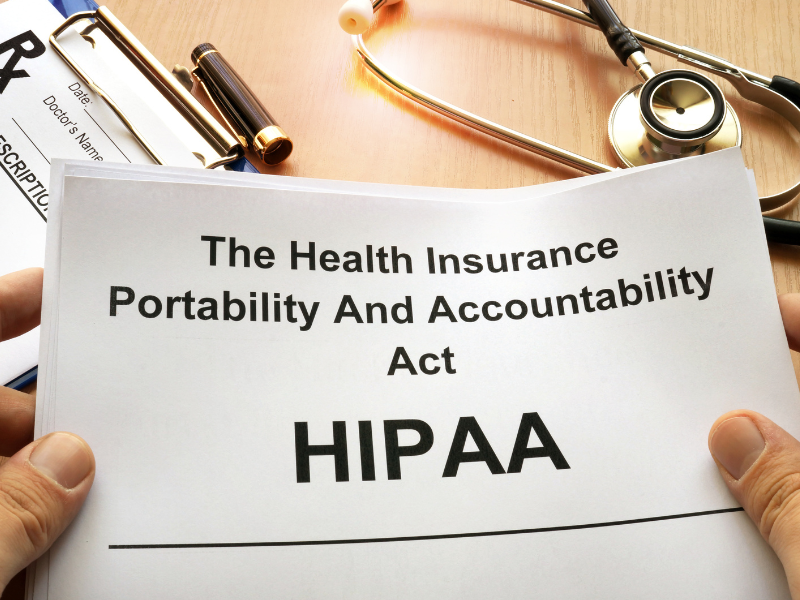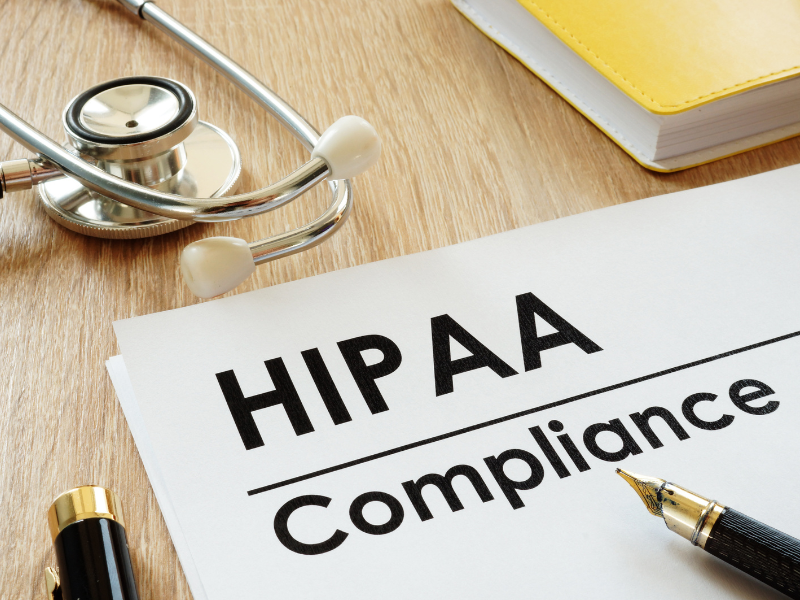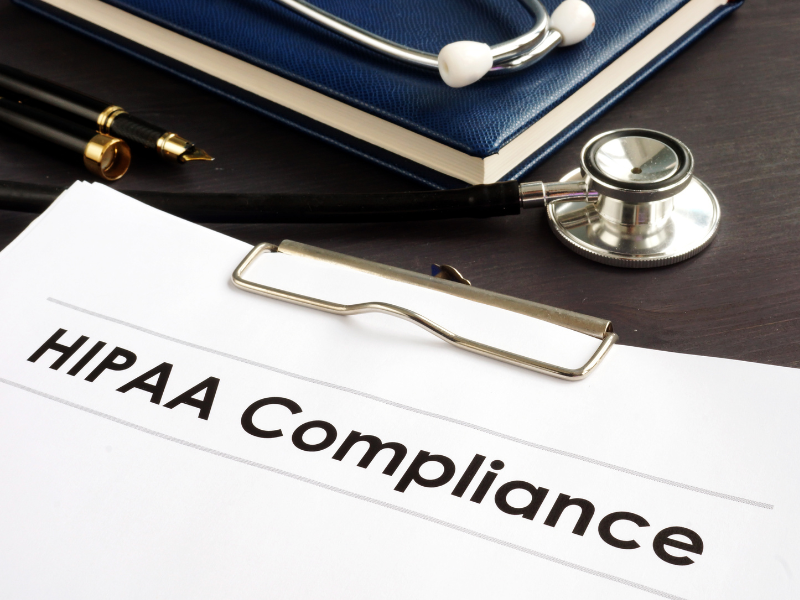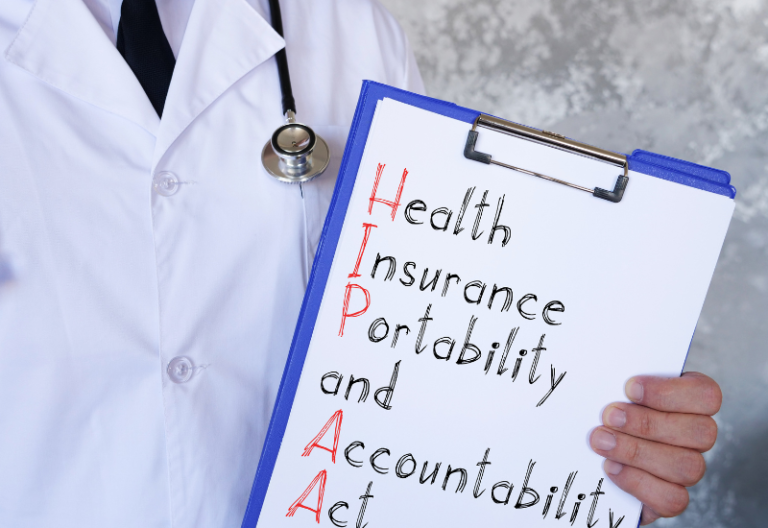HIPAA compliance is vital for healthcare organizations. More than protecting patient data, it establishes their commitment to providing high-quality care and maintaining patient trust. Thus, with increased compliance comes improved satisfaction and heightened credibility.
This article explores how to increase HIPAA compliance using practical yet effective data protection strategies.
Table of Contents

Boosting HIPAA Compliance: 5 Key Steps
Knowing how to increase HIPAA compliance makes a significant difference in safeguarding protected health information (PHI) and avoiding costly fines. Here are some steps to consider if you want to improve your chances of meeting HIPAA’s strict standards and requirements.
1. Conduct third-party risk assessments
Regular audits help identify potential system vulnerabilities and threats. As most healthcare businesses and organizations work with third-party vendors and business associates, risk assessments help determine the level or status of HIPAA compliance of these entities. It’s also crucial for assessing the likelihood of a breach and the safeguards needed to mitigate threats.
2. Implement administrative, technical, and physical safeguards in place
The HIPAA Privacy Rule requires covered entities to place administrative, technical, and physical safeguards to protect PHI. These include securing physical equipment, implementing security measures, and training staff.
For administrative safeguards, HIPAA-covered entities must designate a Privacy and Security Officer to implement policies and standards. Organizations must also place physical safeguards, including lockers and surveillance systems, to mitigate unrestricted access. Lastly, technical safeguards such as user identification, audit controls, and encryption can help protect sensitive electronic records from malware and other forms of cyberattacks.
3. Invest in workforce training for HIPAA awareness
Training on HIPAA awareness and compliance equips employees with the knowledge and skills to protect sensitive health information, eventually boosting HIPAA compliance and reducing the risk of costly data breaches. Proper training also reduces instances of employees snooping around confidential medical records.
The HIPAA Training Certificate Program consists of a comprehensive curriculum focusing on HIPAA regulations’ fundamental aspects. Undergoing training allows employees to understand compliance requirements and implement best practices to mitigate potential risks.
4. Build a culture of compliance in healthcare organizations
HIPAA compliance requires more than just following privacy and security rules. It’s a pledged commitment between the organization and its employees to always uphold patient safety. By cultivating a culture of compliance, healthcare organizations can demonstrate their dedication to providing patients with the best quality of care they deserve.
Promoting transparent and consistent communication among stakeholders and staff is crucial to enhancing HIPAA compliance. Their understanding and support of your plans to improve security measures are vital to success.
5. Utilize modern technology to protect patient data
Medical professionals now rely on online communications to interact with their patients and colleagues. Using HIPAA-compliant technologies allows for seamless document handling and transmission. It’s one way to increase HIPAA compliance and safeguard PHI while promoting transparent and secure communication.
Also, it’s best practice to implement strong passwords and role-based access when exchanging documents using modern technologies. Not only does this help reduce the risk of threats, but it also ensures that only those authorized can access and handle PHI.

Understanding the Importance of Improving HIPAA Compliance
Complying with the Health Insurance Portability and Accountability Act (HIPAA) can help secure protected health information. Healthcare organizations must always put their patients at ease by prioritizing their safety and privacy. Moreover, adherence to HIPAA rules makes patients trust their providers more, making them more inclined to seek and receive treatment.
HIPAA compliance ensures that covered entities have the qualifications to handle PHI securely. It also protects an entity from committing violations that could lead to severe legal penalties and costly fines. After all, failing to ensure compliance warrants serious consequences, such as reputational damages and excessive financial loss.
Ultimately, improving compliance with HIPAA enables an organization to:
- Protect patient privacy and confidentiality
- Focus on providing high-quality care
- Avoid HIPAA fines and legal penalties
Increase Your Organization’s HIPAA Compliance With iFax
Implementing appropriate measures and regular staff training helps boost an organization’s HIPAA compliance. However, these measures alone won’t suffice. It’s also necessary for an organization to choose secure and reliable communication and document exchange solutions that also comply with HIPAA.
With iFax, your organization can streamline administrative processes while ensuring PHI safety. Our platform offers comprehensive solutions that make faxing and document handling secure and efficient. On top of that, you can also integrate sending and receiving faxes into your existing EHR and patient records management systems.
Regarding security, our HIPAA-compliant solution uses end-to-end AES encryption to keep your sensitive records safe at rest and in transit. Tracking and monitoring fax activities is also easier with detailed transmission logs and real-time analytics.
Book a demo today and see how iFax can help your organization improve compliance.








